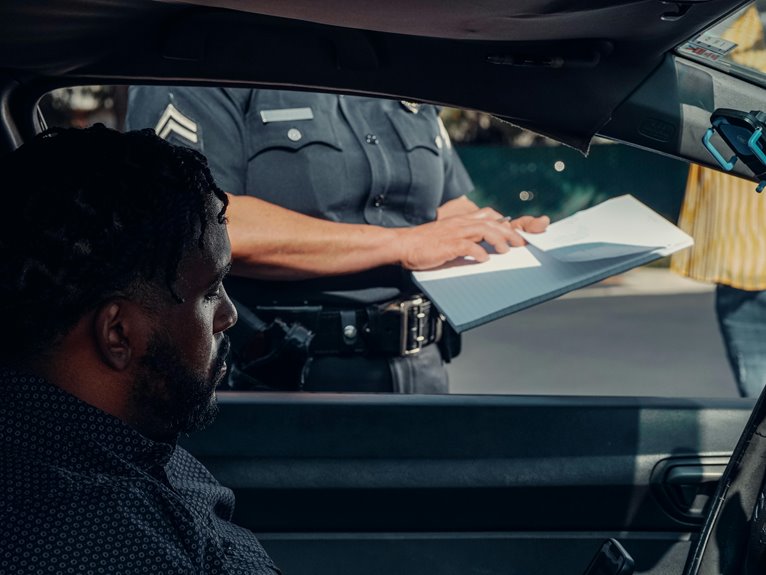When you're maneuvering background checks as a Nigerian nurse, state-specific fingerprinting rules can get tricky. Texas uses IdentoGo for digital prints, while California opts for Live Scan with authorized vendors. The costs and processing times vary, too—Texas typically charges $39 with a week's turnaround, whereas California might hit $399 and take up to two weeks. Staying organized and understanding each state's requirements will save you time and hassle. Stick with me to uncover more insider tips!
Understanding Fingerprinting Requirements for Nigerian Nurses
If you're a Nigerian nurse preparing to work in the United States, understanding the fingerprinting requirements is your essential first step toward licensure.
You'll need to navigate state-specific regulatory compliance rules, particularly in Texas and California.
In Texas, you'll work with Identogo, submitting two fingerprint cards taken by police along with a $39 payment.
California requires Live Scan fingerprinting technology through approved vendors within the state.
Don't worry – while the process might seem complex, it's designed to protect both healthcare professionals and patients.
With the current verification delays in Nigeria taking up to six months, planning ahead for fingerprinting requirements is crucial.
State-by-State Guide to Fingerprint Submission Methods
When starting your fingerprinting journey as a Nigerian nurse in the U.S., you'll discover that each state has its own unique submission requirements and processes.
While adapting to international standards and maneuvering through cultural differences, you'll find that California requires Live Scan submissions with a $49 fee, while Texas accepts digital prints through IdentoGo at $39.
Remember to double-check your personal information carefully, as unmatched records can delay your process. Criminal background checks are a mandatory part of the nursing licensure process.
Having different name variations across documents may require an affidavit of identity to reconcile any discrepancies.
For the smoothest experience, schedule your fingerprinting early and verify your prints are clear and readable, regardless of which state you're applying to.
Key Differences Between Live Scan and Manual Fingerprinting
You'll notice significant differences in processing time between Live Scan and manual fingerprinting, with Live Scan results typically available within days while traditional ink cards can take several weeks or longer.
When choosing between these methods, you'll want to reflect on that Live Scan requires specialized digital equipment and must be performed at authorized locations, while manual fingerprinting can be done with basic supplies at more locations.
Beyond the equipment needs, Live Scan gives you the advantage of immediate quality checks and retakes if needed, which isn't possible with traditional ink-based prints.
Processing Speed Comparison
Two major processing speed differences distinguish Live Scan fingerprinting from manual methods in the Nigerian nursing background check process.
You'll find that technology impact drives efficiency measures in dramatic ways, with Live Scan typically delivering results within 72 hours.
Here's what makes Live Scan faster:
- Instant digital capture and analysis
- Electronic submission to agencies
- Minimal rejection rates
- Real-time quality checks
- Automated processing systems
While manual fingerprinting might seem simpler, you'll face longer processing times due to physical handling and mailing.
If you're looking to start your nursing career quickly, Live Scan's speed advantages could save you valuable weeks in the background check process.
Equipment and Location Requirements
Understanding the equipment and location requirements marks a significant difference between Live Scan and manual fingerprinting methods.
When you're working with Live Scan, you'll need a specialized fingerprint scanner, computer system, and secure data storage – it's like having a mini digital lab.
For manual fingerprinting, you'll rely on ink pads and fingerprint cards.
Location specifications vary too: Live Scan requires a dedicated space with proper computer setup, while manual fingerprinting needs a clean, well-lit area with minimal distractions.
Both methods demand privacy and security, but Live Scan's technical requirements make it more location-specific.
Processing Times and Cost Considerations Across States
When maneuvering the background check process for Nigerian nurses across different U.S. states, you'll find significant variations in both processing times and costs.
Understanding these differences will help you plan your fingerprint verification timeline and budget effectively.
Selecting the most appropriate processing method can help minimize delays and fees.
Here's what you'll typically encounter for cost comparisons and wait times:
- Maine's electronic fingerprinting costs $52, with results in 2-4 business days
- California's Live Scan ranges around $399 total, processing within two weeks
- Texas charges $39 for background checks, with 7-day processing
- NMCN registration takes 6-18 months for completion
- Most states require specific payment methods and document submissions
Common Challenges for Nigerian Nurses in Background Checks
Nigerian nurses seeking international opportunities face several complex hurdles during the background check process, with data collection and verification standing as particularly challenging obstacles.
You'll encounter Employment Obstacles due to scattered records across institutions and inconsistent record-keeping practices. The verification process can be frustrating when dealing with technological limitations and identity verification issues.
If you're pursuing opportunities abroad, you'll need to navigate the NMCN's revised guidelines, including the two-year experience requirement and increased fees.
Understanding these challenges helps you better prepare and maintain the patience needed to achieve your career goals.
Organizations like CGFNS credential evaluation can help streamline document verification for international nursing positions.
Steps to Ensure Successful Fingerprint Processing
You'll want to start your fingerprint processing journey by gathering all required documents and carefully reviewing the specific checklist for Nigerian nurses applying internationally.
To guarantee the highest quality prints, work with an experienced fingerprint technician who's familiar with international nursing applications and can properly capture your unique fingerprint patterns.
Beyond the technical aspects, you'll need to pay special attention to accurately completing all biographical information on your fingerprint cards, as even small errors can lead to processing delays.
Following proper submission guidelines is critical to avoid document rejection and unnecessary processing delays.
Quality Print Collection Tips
Successfully collecting quality fingerprints involves careful preparation and attention to detail. You'll want to make sure you attain peak print quality and fingerprint clarity by following these essential practices.
- Clean your hands thoroughly to remove oils and residue
- Moisturize hands a few days before, but not immediately prior
- Use your non-dominant finger for clearer ridge patterns
- Roll each finger from side to side to capture complete prints
- Take multiple prints to guarantee the best possible images
Remember to verify each print's clarity before submission.
If you're using a digital scanner, keep the sensor clean and experiment with different pressure levels until you achieve the best results.
Document Preparation Checklist
With quality fingerprints in hand, let's organize your documentation to guarantee smooth processing of your background check.
Here's your essential application checklist overview: First, complete your registration forms with passport photos and arrange for transcripts to be sent directly to the council.
You'll need letters of good standing from both employers and schools, and don't forget to authenticate your foreign credentials.
For document organization tips, create a tracking system to monitor what's been submitted and what's pending.
Consider utilizing OPT extensions to maintain work eligibility while awaiting background check completion.
Avoiding Common Submission Errors
Since fingerprint rejections can delay your nursing background check by weeks, mastering the submission process is essential for a smooth experience. Here are some tips to avoid common rejection reasons:
- Keep your hands clean for clear prints.
- Use digital fingerprinting methods for better quality.
- Roll each finger fully to capture complete prints.
- Double-check your information for accuracy.
- Submit on time to prevent processing delays.
Implementing these successful resubmission strategies guarantees you won't face unnecessary hurdles.
Conclusion
Steering through fingerprinting for your nursing career can feel overwhelming, but you're not alone! With this guide, you now have a clearer understanding of the requirements in your state and how to tackle any challenges. Remember, staying organized and informed is key. Don't hesitate to reach out for help or ask questions along the way. You've got the skills and determination to succeed—this is just one step in your nursing journey. Keep pushing forward; brighter days are ahead!


